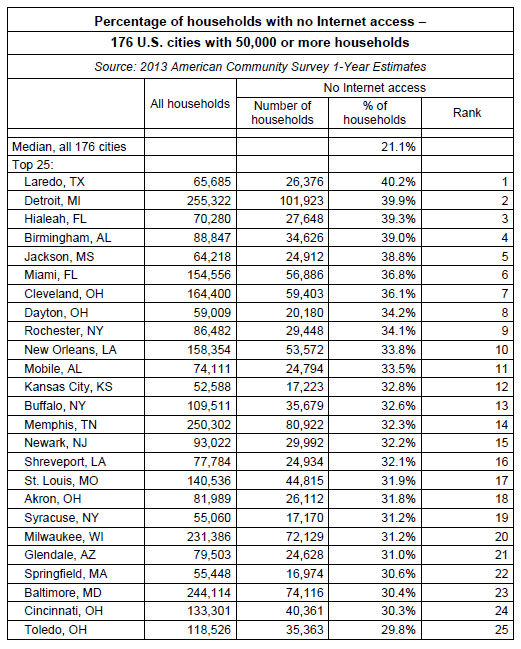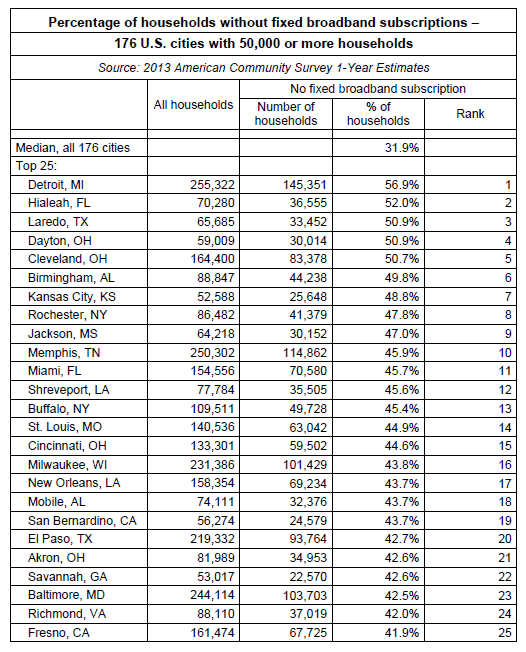 America’s least-connected live in much of upstate New York, including the cities of Buffalo, Rochester, and Syracuse and a large percentage of the state of Ohio, including the cities of Cleveland, Dayton, Akron, Cincinnati, and Toledo.
America’s least-connected live in much of upstate New York, including the cities of Buffalo, Rochester, and Syracuse and a large percentage of the state of Ohio, including the cities of Cleveland, Dayton, Akron, Cincinnati, and Toledo.
The data comes from the 2013 U.S. Census American Community Survey, which now gathers information on household Internet connections. Out of 176 major American cities with 50,000 or more residential households, the Redistributing the Future blog team was able to crunch the numbers and score which American cities are most likely to lack home Internet access of any kind, including dial-up and mobile Internet (smartphone) and those that lack wired broadband of any kind, including cable, DSL, fiber, or satellite Internet.
The most common reasons homes lack Internet access are: cost (ie. consumers cannot afford the price of the service), availability (one cannot subscribe because the service is not offered), or disinterest (typically older Americans are the most likely to claim they don’t need Internet access).
The worst-scoring include economically challenged communities like Detroit, Mich., and those with extremely large ethnic populations, including Laredo, Tex., and Hialeah, Fla.
Laredo has a 30 percent rate of poverty. Laredo households with children under the age of eighteen headed by women have a 51 percent poverty rate. More than 95% of the population self-identify as Latinos. Hialeah has the highest percentage of Cuban and Cuban-American residents of any city in the United States, at 74% of the population.
It is too early to tell why regions in upstate New York and much of Ohio score particularly badly. Time Warner Cable is by far the most dominant player in upstate New York, winning much higher market share than competitors Verizon and Frontier. In Ohio, rankings for the city of Cleveland are particularly dismal: 51% of Cleveland’s households still didn’t have “fixed” broadband accounts (i.e. cable modem, DSL, satellite, etc.) in 2013. Even counting mobile devices, 45% of the city’s households didn’t have broadband Internet accounts. The economy is likely to have something to do with that. At least 61% of Cleveland households had incomes below $35,000 in 2013.


Data and charts courtesy: Bill Callahan


 Subscribe
Subscribe
Is there a copy of the full report with all the cities presented and (maybe) ranked?